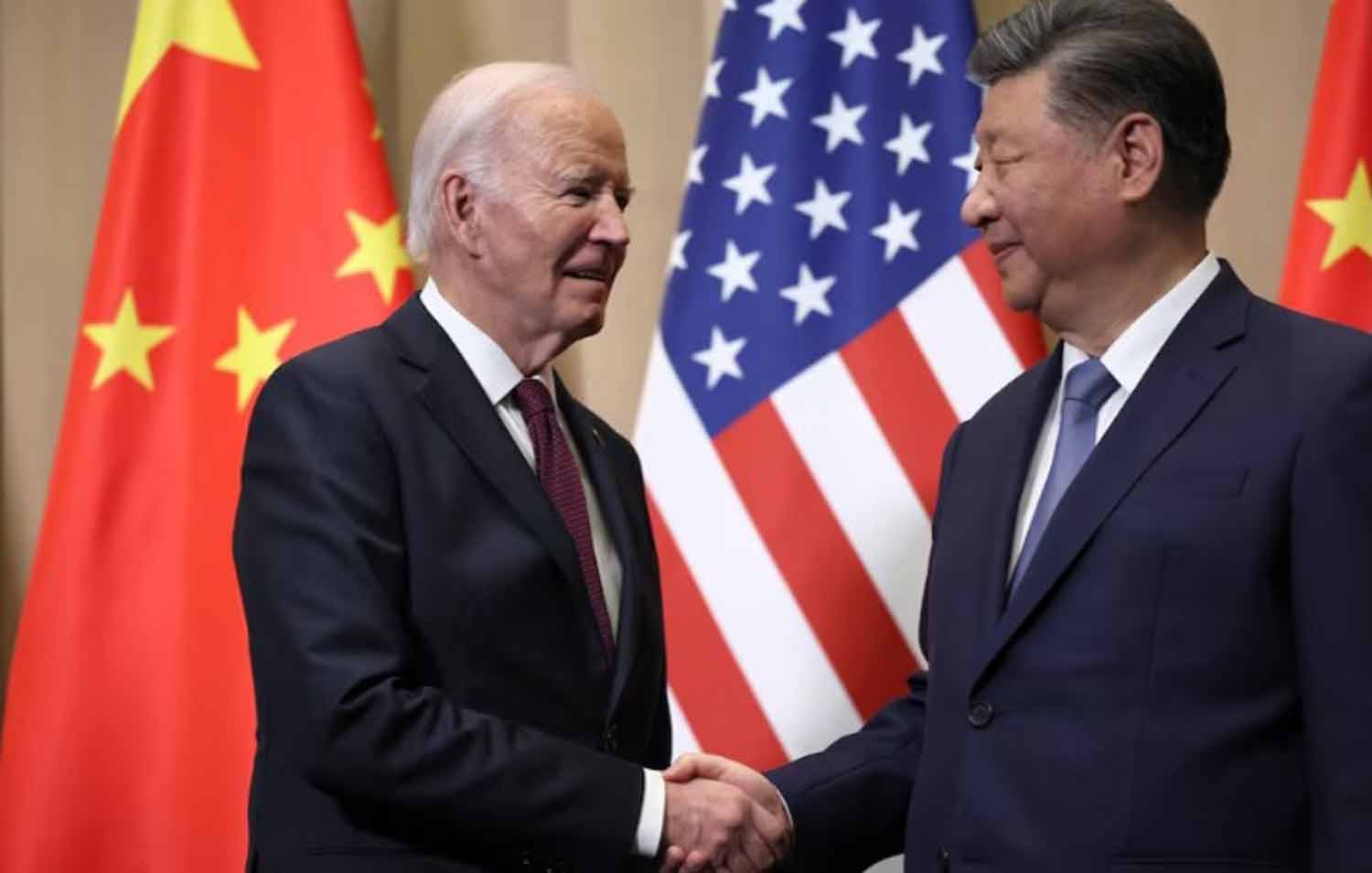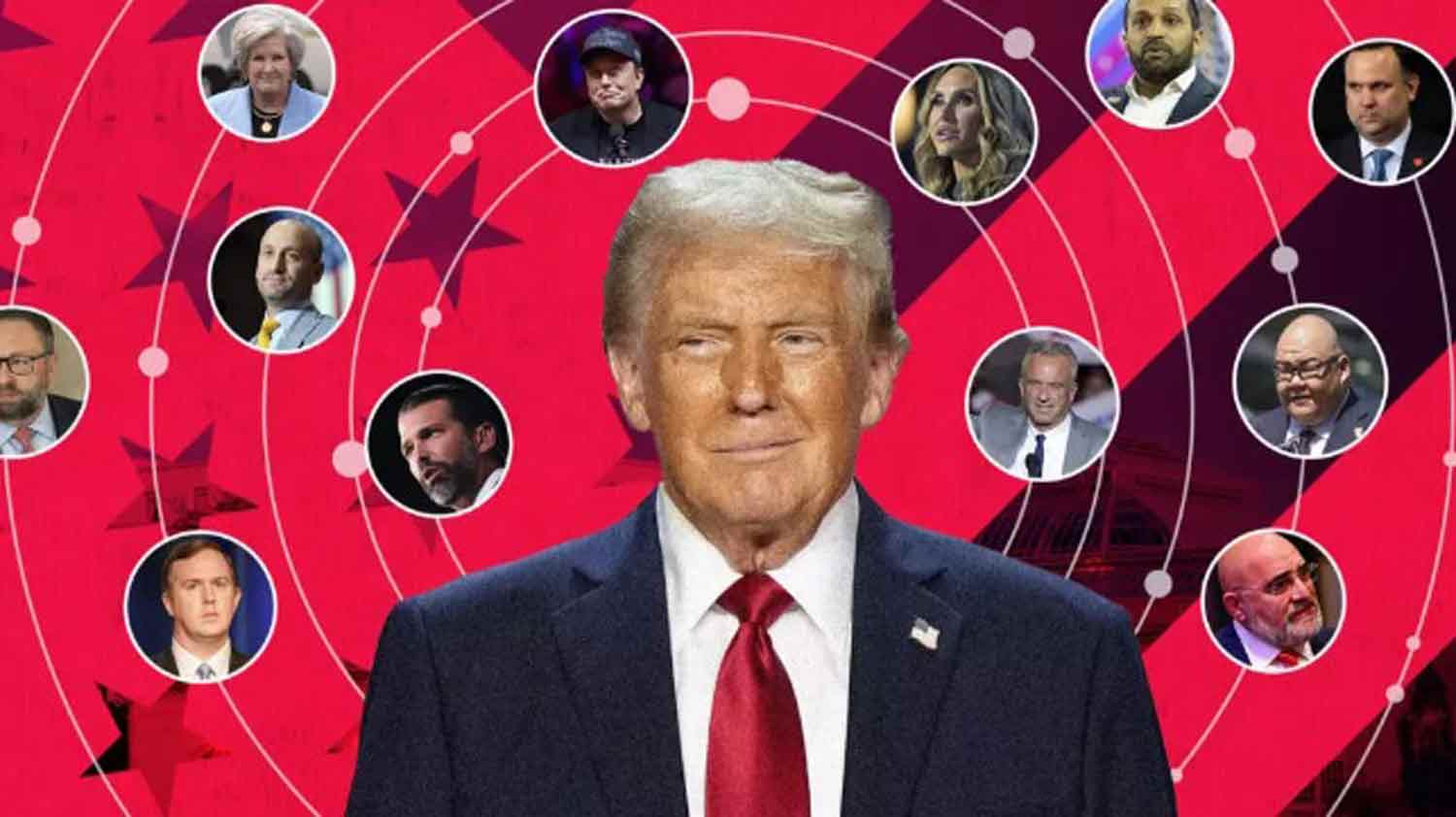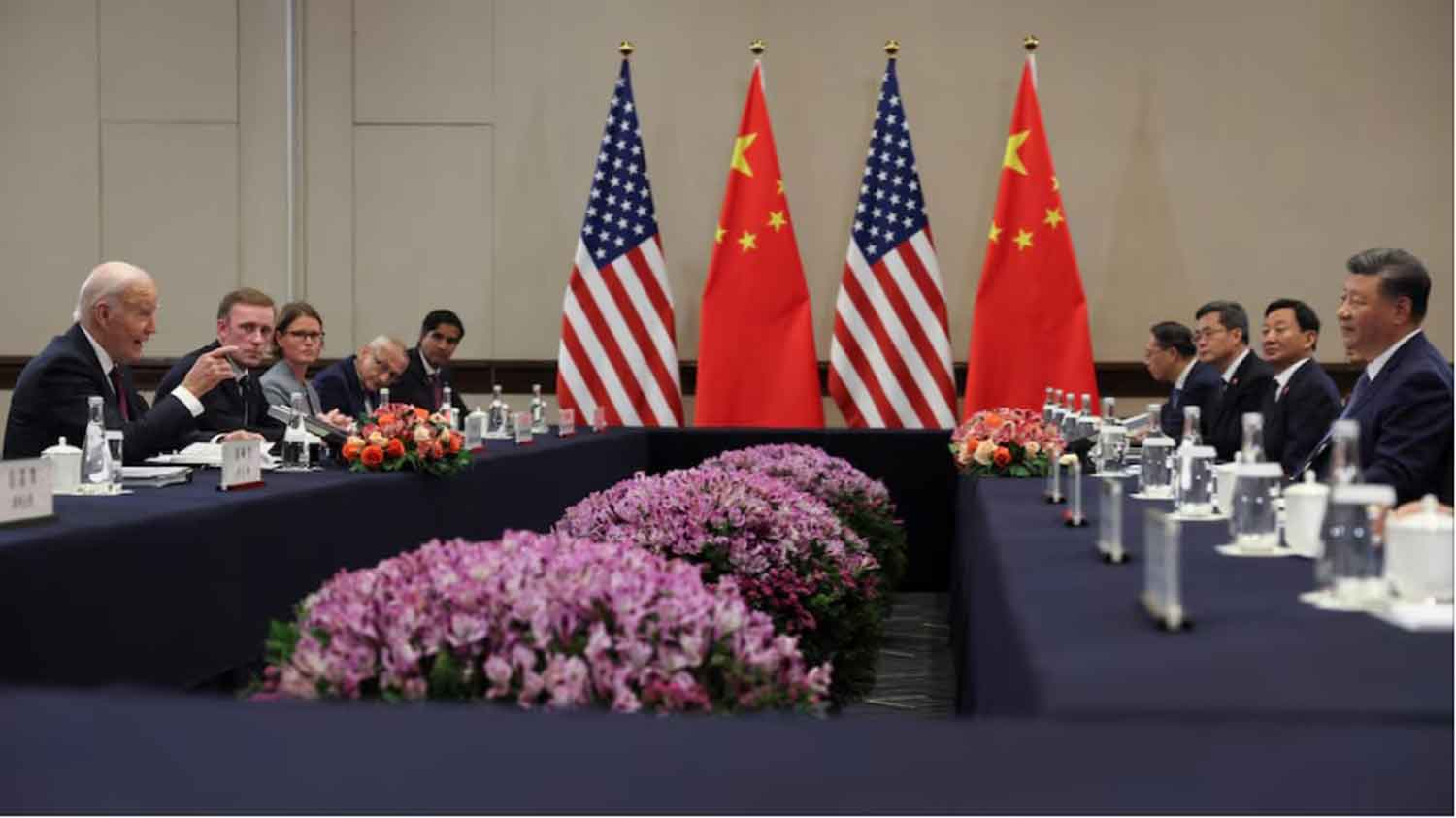Joe Biden held his final meeting with Chinese President Xi Jinping as U.S. president on Saturday, aiming to ease tensions ahead of Donald Trump‘s inauguration. However, this objective was complicated by new disputes regarding cybercrime, trade, Taiwan, and Russia.
The two leaders convened at a hotel where Xi was staying during the Asia-Pacific Economic Cooperation forum in Lima, Peru, marking their first discussions in seven months.
Upon meeting, Biden and Xi exchanged handshakes before settling into their seats for brief opening statements.
Xi expressed that China’s commitment to collaborating with the United States remains “unchanged” following the elections, indicating Beijing’s readiness to engage with the incoming administration.
The U.S. is outraged by a recent cyberattack linked to China that compromised the communications of government officials and presidential campaign staff. Additionally, there are growing concerns regarding China’s increasing assertiveness towards Taiwan and its support for Russia.
Taiwan’s President Lai Ching-te is expected to make a stop in Hawaii and possibly Guam during an upcoming visit that is likely to provoke Beijing’s ire, as reported by Reuters on Friday. Concurrently, Biden met with Taiwan’s representative at the summit, former economy minister Lin Hsin-i, who extended an invitation for him to visit Taiwan soon.
China considers Taiwan, which operates as a democracy, to be part of its territory. The U.S. remains Taiwan’s most significant international ally and arms supplier, despite the absence of formal diplomatic relations.
Biden is seeking China’s assistance regarding North Korea, particularly in light of the country’s increasing connections with Russia and troop deployments that have raised concerns in Washington. Concurrently, China’s economy is facing significant challenges due to Biden’s trade policies, which include plans to limit U.S. investments in Chinese sectors such as artificial intelligence, quantum computing, and semiconductors, as well as imposing export restrictions on advanced computer chips. U.S. officials anticipate that these issues will be central to the discussions.
China consistently refutes U.S. allegations of hacking, views Taiwan as a domestic issue, and has expressed objections to American comments on Sino-Russian trade. A representative from the Chinese Embassy in Washington chose not to provide a statement.
BLANKET TARIFFS
Trump has pledged to implement sweeping 60% tariffs on U.S. imports of Chinese products as part of his “America First” trade agenda, which Beijing strongly opposes. The Republican president-elect is also expected to appoint several hardline figures on China to key positions, including U.S. Senator Marco Rubio as secretary of state and Representative Mike Waltz as national security adviser.
On Wednesday, Jake Sullivan, Biden’s national security adviser, characterized the transition period as one where competitors and adversaries might perceive opportunities. Biden intends to emphasize to Xi the importance of maintaining stability, clarity, and predictability during this transition between the United States and China.
Shen Dingli, an international relations expert based in Shanghai, noted that China is eager for the meeting to help alleviate tensions during this transitional phase. “China certainly does not wish for relations with the United States to become chaotic before Trump officially assumes office,” Shen remarked.
Leaders from the Pacific Rim convened at the APEC summit are evaluating the potential impacts of Trump’s return to the presidency on January 20. The South American summit highlights the challenges facing U.S. influence in its own region, where China is actively engaging in diplomatic outreach.
Xi, who arrived in Lima on Thursday, is set to embark on a week-long diplomatic initiative across Latin America. This agenda includes revitalizing a free-trade agreement with Peru, inaugurating the significant Chancay deep-water port, and receiving a warm welcome in Brazil’s capital next week for a state visit. Additionally, China has announced its intention to host the APEC summit in 2026.
China is actively pursuing Latin America’s metal ores, soybeans, and various other commodities. However, U.S. officials express concerns that China may also be seeking to establish new military and intelligence outposts near the U.S. Chinese state media, backed by the government, has dismissed these allegations as unfounded.
A U.S. official emphasized that Washington remains committed to the region, noting that Chinese infrastructure investments abroad have diminished in recent years due to domestic issues and challenges with ongoing projects.
Ryan Berg, director of the Americas Program at the Center for Strategic and International Studies, a Washington-based think tank, indicated that Xi is likely to receive a favorable response during his visit.
“Biden’s trip will be significantly overshadowed by Xi Jinping’s activities at APEC,” he remarked. “When Xi engages with Biden, part of his audience extends beyond just the White House or the U.S. government. It also includes American CEOs, as he aims to foster continued U.S. investment in China and dispel the notion of a hostile business climate there.”
Discover more from Defence Talks | Defense News Hub, Military Updates, Security Insights
Subscribe to get the latest posts sent to your email.





